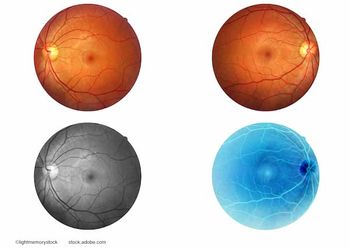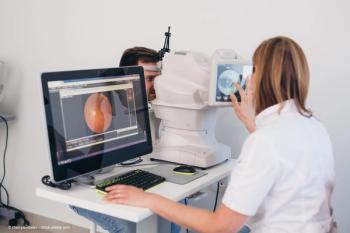
Lineage to announce data from phase 1/2a study on use of RG6501
Lineage Cell Therapeutics will be presenting data on the safety and tolerability of RG6501 (OpRegen) for the treatment of geographic atrophy, secondary to age-related macular degeneration during the upcoming Clinical Trials at the Summit 2025 meeting.
Biotechnology company Lineage Cell Therapeutics recently announced it will be presenting data from its phase 1/2a clinical study (
Christopher D. Riemann, MD, vitreoretinal surgeon and fellowship director of the Cincinnati Eye Institute (CEI) and University of Cincinnati School of Medicine, will present the data on behalf of Roche and Genentech in a presentation titled, “OpRegen Retinal Pigment Epithelium (RPE) Cell Therapy for Patients with Geographic Atrophy (GA): Month 36 Results from the Phase 1/2a Trial.”
An open-label, single-arm, multicenter, dose-escalation trial, the phase 1/2a study evaluated a single administration of RG6501 delivered subretinally in patients with bilateral GA. The primary objective of the study was to evaluate the safety and tolerability of RG6501 as assessed by the incidence and frequency of treatment-emergent adverse events.
The phase 1/2a study enrolled 24 patients across 4 cohorts – the first 3 cohorts enrolled only patients classified as legally blind with a best corrected visual acuity (BCVA) of 20/200 or worse; the fourth cohort enroller 12 patients with impaired vision (BCVA from 20/65 to 20/250 with smaller mean areas of GA).
RG6501, being developed in a collaboration between Lineage and Roche and Genentech, is described as “a suspension of allogeneic retinal pigment epithelial (RPE) cells currently in development for the treatment of GA secondary to AMD,” according to a press release.1 Through subretinal delivery, RG6501 has the potential to counteract RPE cell loss in GA through supporting retinal health and improving retinal structure and function.
At the time of this article, RG6501 is currently being evaluated in a phase 2a clinical study (
Reference
1. RG6501 (OpRegen®) Phase 1/2a Clinical Study 36 Month Results to Be Featured at Clinical Trials at the Summit 2025. BioSpace. Published May 12, 2025. Accessed May 19, 2025. https://www.biospace.com/press-releases/rg6501-opregen-phase-1-2a-clinical-study-36-month-results-to-be-featured-at-clinical-trials-at-the-summit-2025
Newsletter
Keep your retina practice on the forefront—subscribe for expert analysis and emerging trends in retinal disease management.














































